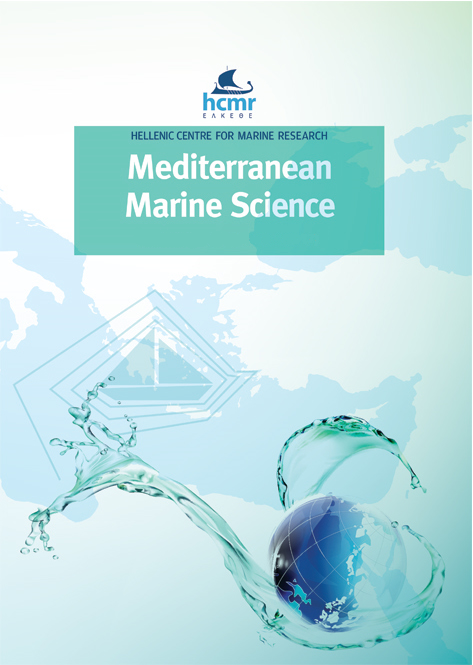Occurrence of Didemnum perlucidum Monniot F., 1983 on artificial substrates along the Mediterranean coast of Israel
Abstract
Introductions of non-indigenous ascidian species are highly common nowadays due to their ability to establish successfully on artificial substrates. Didemnid species are of particular concern because of their rapid a-sexual growth and high fecundity. The colonial ascidian Didemnum perlucidum Monniot F., 1983 was first described from Guadeloupe Island in the Caribbean, although its native range remains unknown. To date, it has been recorded from numerous sites across the Indo-Pacific and Atlantic oceans. Here, having employed both classic taxonomy and genetic tools to verify its identification, we document for the first time its occurrence in the Mediterranean Sea – on two artificial substrates along the Israeli coast. The ability of D. perlucidum to establish reproductive populations despite the harsh environmental conditions of this region, with temperature fluctuations between 16-31°C and a salinity of 38-39 ppt, raises concern regarding this species’ potential for introductions at numerous sites across the Mediterranean.
Article Details
- Zitationsvorschlag
-
NOVAK, L., & SHENKAR, N. (2020). Occurrence of Didemnum perlucidum Monniot F., 1983 on artificial substrates along the Mediterranean coast of Israel. Mediterranean Marine Science, 21(2), 386–392. https://doi.org/10.12681/mms.22223
- Ausgabe
- Bd. 21 Nr. 2 (2020)
- Rubrik
- Short Communication
Authors who publish with this journal agree to the following terms:
- Authors retain copyright and grant the journal right of first publication with the work simultaneously licensed under a Creative Commons Attribution Non-Commercial License that allows others to share the work with an acknowledgement of the work's authorship and initial publication in this journal.
- Authors are able to enter into separate, additional contractual arrangements for the non-exclusive distribution of the journal's published version of the work (e.g. post it to an institutional repository or publish it in a book), with an acknowledgement of its initial publication in this journal.
- Authors are permitted and encouraged to post their work online (preferably in institutional repositories or on their website) prior to and during the submission process, as it can lead to productive exchanges, as well as earlier and greater citation of published work (See The Effect of Open Access).






